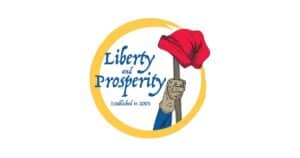“One institution most anxious to spread the news about ‘capitalism’ (what communists, fascists, and socialists call economic freedom) was the Alfred P. Sloan Foundation. It was founded by the former chairman of General Motors. The Sloan Foundation funded a small institution (the pro-free enterprise, staunchly anti-Communist Harding College in Searcy, Arkansas. It hired John Sutherland Productions, Inc. as producer) to produce a series of nine “short cartoon films, in color, which would portray simple economic truths about the American system of production and distribution in an interesting and entertaining manner.” A series of grants totaling $597,870 was made to Harding College, $150,000 of this contributed by the Maurice and Laura Falk Foundation of Pittsburgh. The films were intended both for showing in theaters, schools, at community group meetings and in workplaces, often at lunchtime screenings in factories. Ironically, this effort was made feasible by a Federal government initiative: the distribution of war surplus 16mm projectors to educational and nonprofit organizations.
There was nothing new about the idea of reaching working people on the job. As an idea, “luncheon movies” date back to the ‘teens, when John Patterson of National Cash Register in Dayton, Ohio pursued what were then advanced media forms to reach NCR employees with messages of inspiration, training and control. During the Depression, companies undergoing union organizing campaigns took every opportunity to reach their workers with anti-union messages, morning, noon and night.
As Business Screen (Vol. 10, No. 1, 1949) said, “During the war, 62% of large U.S. employers made use of incentive or employee attitude motion pictures. Today, that figure has dropped to 35%. Isn’t it reasonable to believe that a mass return to employee film programs would help pave the way for smoother labor-management relations? And at 50c a year per employee, or even two or three dollars, wouldn’t it be cheaper than a strike ending in a 12-1/2c an hour pay raise?” (See “Movie Day in Your Plant” in the Archive section on this disc.)
But Sloan’s project was about more than smoother labor-management relations. Although the Harding College films purported to be relaxed, humorous explanations of how America’s economy works, they sought both to discredit anti-capitalist ideas and explain why our system worked better than any conceivable alternative. Although the apparent collapse of socialism around the world in the late 1980s may make these films seem prophetic today, such ideas weren’t taken for granted in the postwar climate.
Make Mine Freedom links patriotism with free enterprise and freedom with prosperity. “Working together to produce an ever-greater abundance of material and spiritual values for all. That is the secret of American prosperity.” “Working together,” of course, is a dishonest concept when used to describe communities whose interests differ.
Unlike such films as Greyhound’s upfront patriotic lump-in-the-throater Freedom Highway (on The Uncharted Landscape disc), Make Mine Freedom employs a “stealth” strategy. Self-deprecating humor prevails, perhaps because the films were made to play before distracted and highly skeptical audiences, and the targets of this humor include our consumer culture and the dubious innovations it creates.
Specific ideologies, whether Communism, socialism, fascism or capitalism, aren’t mentioned. Instead, “Isms” and “imported doubletalk” are mentioned dismissively. “Ism will cure any ailment of the body politic,” claims “Dr. Utopia,” just like an old-time snake oil salesman. “Ism” offers something to workers, manufacturers and politicians, and to farmers, well, “Ism even makes the weather perfect every day.”
The salesman asks his audience to make this pledge: “I hereby turn over to Ism, Incorporated, everything I have, including my freedom, and the freedom of my children, and my children’s children, in return for which said Ism promises to take care of me forever.” This doesn’t scare them. So onlooker “John Q. Public” urges them to get better acquainted with the enemy.
“Before signing up, you boys ought to try a little taste of Dr. Ism’s formula to see what you’d get in exchange for your ‘freedom.’ Go ahead! Try it.” They drink and are plunged into a totalitarian dream. Clamped inside the State’s iron fist, the worker cannot strike and is no longer protected by his union. The manufacturer is now irrelevant. “No more private property. No more you!” the State says to manufacturer, kicking him out onto the street. The farmer is controlled through a central production plan and turned into an industrialized employee of the state. One courageous politician speaks up for freedom, but is quickly brainwashed, becoming “State Propaganda speaker 3120,” a phonograph where his head should be, saying “Everything is fine!” over and over again.
The Sloan Foundation lets John Q. Public have the last word. “When anybody preaches disunity,” Mr. Public says, “tries to pit one of us against the other through class warfare, race hatred, or religious intolerance, you know that person seeks to rob us of our freedom and destroy our very lives. And we know what to do about it!” In a hail of his tonic bottles, Dr. Utopia is chased away and flees towards a glowing city.

